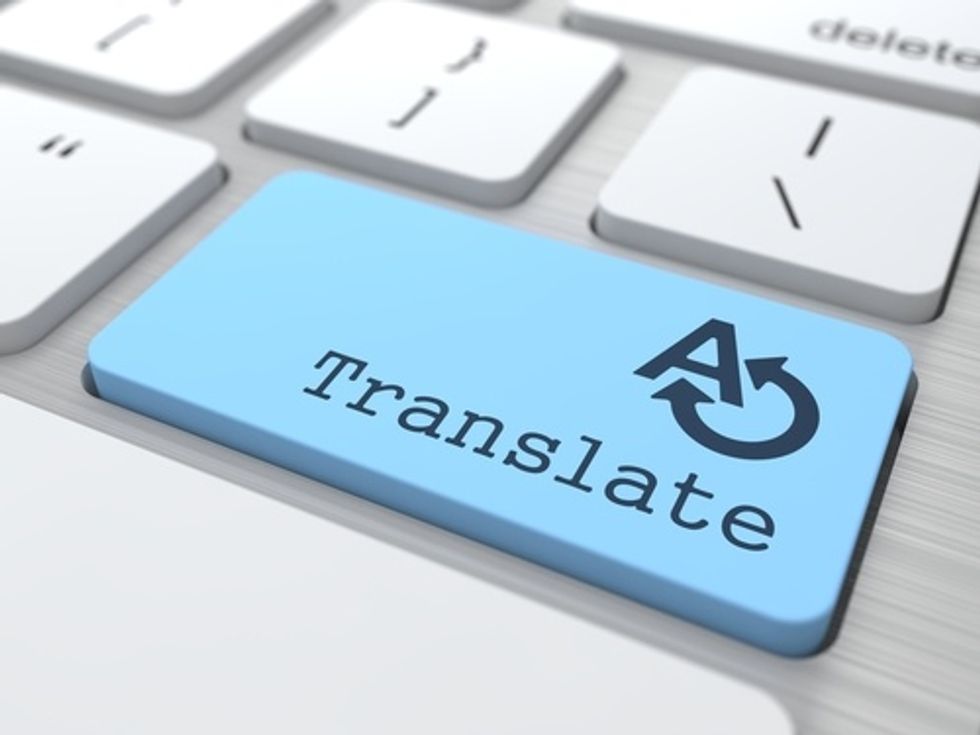There's something incredibly beautiful about being able to speak a foreign language; it opens the door of possibility and provides one with the ability to communicate effectively, as well as understand, an entirely new world of people. Hand in hand with language is culture; in order to fully grasp the ins and outs of a language, knowledge of the customs and traditions of the people who speak it is essential.
Unfortunately, learning a language is not as easy as most would like it to be. The merging of various sounds to form words is done differently in every language, and the laws and structure of a foreign language's grammar are often feared by many. For those of you on a foreign language journey or thinking of starting one, below are the three most essential routes to learning any language.
1. Apps

Learning a new language is difficult, which is part of the reason why there's a huge market for apps to help you do it. There are a plethora of options, and oftentimes people end up paying for apps and programs unnecessarily.
I've found Memrise to be the most comprehensive, accurate, and effective. The app (or website, depending on how you choose to use it) offers just about any language you can think of, and for free! You're given access to multiple courses within each language and can select where to start in your language-learning journey depending on your prior knowledge and current objectives. They do offer upgrades, which include additional remediation and more extensive features if you decide that handing over a few extra bucks would benefit you. Other apps worth mentioning include Duolingo, LingoDeer, HelloTalk, and HiNative.
Regardless of which one you chose, the function of language-learning apps should remain the same; it's important to find the app that keeps you motivated and dedicated as well as the one that is easiest for you to use while on-the-go.
2. Media
Learners living in communities where their target language may not be spoken widely (or even taught at all) now have unprecedented access to an abundance of media, both educational and non-educational. Such resources allow for immersion without the physical immersion; by surrounding oneself with the written and spoken language, learners begin to get a feel for their target language in a daily setting.
Listening to podcasts and music provides an inside perspective on the values and current events of the countries and cultures associated with the target language. YouTube is a phenomenal resource, as it hosts just about any type of language-related video possible. I also highly recommend television shows or movies in your target language (whether you decide to go the subtitles route is completely up to you, although I must admit that they are highly beneficial), as I find that they are especially good at keeping me entertained and thus motivated in regards to learning the language.
3. Immersion

Immersion is essential in bringing together your speaking, listening, reading, writing, and comprehension skills; there's honestly no better way to test your limits and advance your language skills. And yes, while immersion is not always the most wallet-friendly option, there is certainly the opportunity for those willing to look for it.
Unbeknownst to most, there are many unique funding opportunities for students to study languages, especially those less commonly taught in world regions critical to U.S. interests and underrepresented in study abroad. At the high school level is the National Security Language Initiative for Youth (NSLI-Y) and Congress-Bundestag Youth Exchange (CBYX) scholarships, and at the college level are the Critical Language Scholarships (CLS) as well as Boren Scholarships. Applications are free, and so are the programs. You'll never make the shot you don't take!
There is no straight-cut path for language learners. Everybody has their strengths and weaknesses when it comes to effective learning material, and you'll definitely find that certain methods will work better than others. But one thing is certain: you must maintain a steady exposure to your target language in order to retain the sounds, words, grammatical structures, and more than you absorb through language study. If you haven't tried the above already, I highly recommend doing so, as they provide the continual exposure necessary to learning a language.
To all my fellow language learners out there, I wish you the best of luck!



















